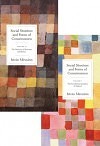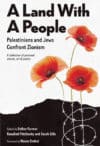Feyzi Ismail assesses the strategies and tactics of a group of British suffragettes with an eye toward building a more effective climate movement. | more…
The significance of Epicurus and Epicureanism for an understanding of classical historical materialism and for the renewal of Marxism today should be readily apparent. The one-sided Western Marxist philosophical tradition, for all of its immense contributions, was based from its beginning in the 1920s on a rejection of materialist dialectics, or the dialectics of nature, and thus of natural science. This translated into the negation of any meaningful materialist conception of nature. Yet, without a thoroughgoing materialist perspective it is impossible to perceive the relation of humanity to nature, of which we are a part. In terms of Marx’s later analysis, this requires recognizing how the labor and production process constitutes the specific human “social metabolism” within the “universal metabolism of nature.” | more…

In October 2025 the study group “essential discussions” will convene online discussions of Istvan Meszaros’s ‘Social Structure and Forms of Consciousness.‘ You are welcome to join the discussion! | more…
Bob McChesney, that prescient seer on the subject of media consolidation, died last month. He was one of Monthly Review’s greatest, longest, friends. About one of his MRP books, Noam Chomsky once wrote: “This valuable inquiry should be carefully studied and pondered, and should be taken as an incentive to action.” | more…
Albo and Maher call for a left politics ‘explicitly directed toward the goal of socialist transition’ and warn of ‘broader transformative goals’ being ‘perpetually deferred and ultimately abandoned’ because ‘the relentless pressures of electoral timetables and parliamentary logics’ reduce ‘reform to an end in itself’. At the same time, this vision has gone hand in hand with what Albo and Maher call working ‘inside and outside of the state’… | more…
The Left has decried the privatization of services like water and electricity. Is it enough to return them to public ownership and control? According to David A. McDonald, the goal should be more equitable, democratic, and non-marketized forms of public services.… | more…
More than ever, the Left in the Global North consists of three maincurrents: those who prioritize working class struggles, those who prioritize anti-imperialism, and those who prioritize social issues, sometimes misleadingly referred to as “identity politics.” Needless to say, the three intersect, but there is also tension between them. A realistic political strategy would recognize the deep social roots of the three main currents and would promote diversity and tolerance in accordance with Mao’s dictum on the need to recognize “contradictions among the people.” Only within this framework, will the debate over priorities be fruitful… | more…
Losurdo’s critique is not gentle, and it is not designed to comfort. It is designed to clarify. He is not offering a better theory. He is offering a better side… | more…
Massive amounts of money are needed to address the multiple social and ecological crises besetting societies around the globe, and according to Thomas Marois, the lion’s share of that financing will need to come from public banks… | more…
Anarchist journalist Rafael Barrett (1876-1910) inveighed against the array of injustices suffered by Paraguayans, including those working in the yerba mate forests. He was beloved by many of his fellow fighters and poets, including the likes of Borges…. | more…
Gramsci’s idea of cultural hegemony, or how the ruling ideas dominate a society, builds on Marx’s notion of false consciousness, which does flow from the ways in which the prices of commodities disappear the human labor contained in them. In Gramsci’s perspective, workers’ culture, past and current practices of laboring and living are also factors in their attraction to powerful authority. It is a complex mix. | more…
What were Antonio Gramsci’s contributions to radical political thought? Andy Merrifield discusses the Italian thinker, writer, and politician who was imprisoned by Mussolini’s fascist regime. | more…

